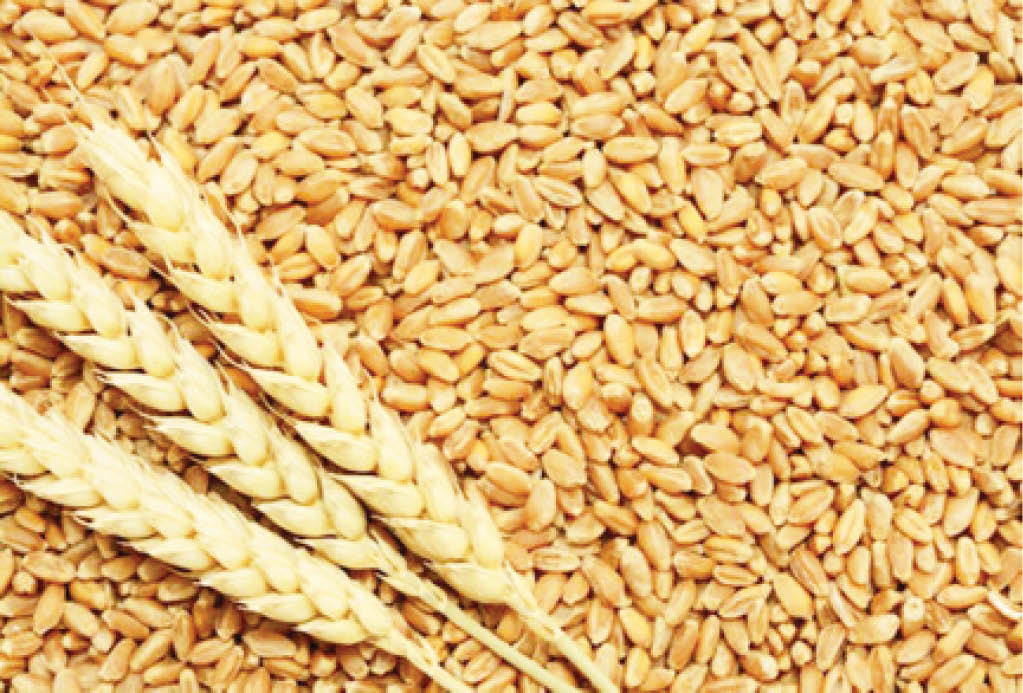For decades, the wheat story in Nigeria has not been positive despite various federal government pronouncements and task forces set up to scale up wheat production. The challenge forced many wheat farmers to direct their energy more towards rice which enjoys favourable policies and funding.
The local demand for wheat has grown to over 6 million tonnes (MTs) in 2021 due to a growing population estimated at over 200 million. For instance, the demand by flour millers is estimated at 5.1 MTs, while other users outside the processors use about 1m MTs.
- Input of Nigerian women ‘significant, but undervalued – Tita Young
- 200 pregnant women, nursing mothers get succour
The current rice production according to an estimate from the Wheat Farmers Association of Nigeria (WFAN) is about 420,000 MTs, with production estimated to reach over 600,000 MTs when harvest begins in the next two months.
Few months ago, the price of wheat hit N32, 000 per 100kg bag, forcing prices of flour and other household consumables like bread to go up.
Domestic production of wheat is moving at a very slow pace because there are many issues that make it be on a declining trajectory since 2018.
ABP not rolling
Since 2018, wheat farmers stopped benefitting from the Central Bank of Nigeria (CBN) Anchor Borrower Programme (ABP) after accessing about N2.3 billion that year.
This year, about 285,000 farmers have been validated by the CBN, but their issue with their financial institution over the 2018 poor loan recovery rate, which was about 40 percent, is counting against them.
The President of WFAN, Alhaji Salim Mohammed Sale, told Daily Trust that they were not participating in the ABP despite having about 285,000 farmers cleared and qualified for it.
Alhaji Sale said because of the poor recovery rate, the first participating financial institution withdrew from them and that their attempt to change to another bank was not accepted by CBN.
The same thing happened in 2019 when 11,000 farmers were cleared but did not access the fund because of the 2018 recovery rate.
Alhaji Sale further said, “This year we engaged 285,000 farmers and CBN has validated the list. After speaking with Unity Bank, they said they were not interested in working with us, so we moved to Keystone Bank. After meeting all the requirements necessary, Keystone wrote a letter looking for the cash backing of the programme, but there were challenges because we have one exposure which we were unable to pay…So we were told to go back to Unity Bank where we have the exposure.
“However, we highlighted three or four points; that they should continue with the programme with us so that one, we will have sustainability in wheat production; two, defaulting farmers are not the ones to be engaged in the programme so that it will serve as a lesson to them and it will encourage them to pay back and rejoin; three, we will have learnt from our past experiences in recovery and come up with something more effective in the recovery system; and four, deployment of mechanisation that will make the programme sustainable.”
He pointed out that the best way was not to stop the programme completely, but to evolve other ways that would improve recovery, adding that not all rice, maize and cotton farmers paid all their loans, but that the programme still continued for those crops.
He said this was going to affect wheat production, noting that even with the ABP, many farmers were still not willing to go into its production.
Alhaji Sale explained that, “It was the association that brought courage for farmers to go into production because of the agreement between them and the offtakers. You cannot grow something that you do not have a market for. We tried and created the market between us and the millers. Even individuals in wheat farming come through the association to sell the product to the milling plants; and they find it very easy.
“Now that they are not in the programme, the farmers find it very difficult to sell the product in the market. Two, there is insufficiency already in the subsector of wheat. The only way you can reduce that and cut down the import bill we are paying is by engaging multiple farmers to produce.”
Seeds looted in Jos
Daily Trust gathered from reliable sources at the Federal Ministry of Agriculture and Rural Development that during the #EndSARS protest, about 3,600 bags of improved wheat seeds were looted. The grains were stored in Jos, the Plateau State capital, because of its conducive weather. Since the looting, no farmer has received any assistance in terms of cash and planting materials.
Despite insufficient certified seeds, some farmers get seeds through the community seed production system whereby each farmer saves seeds against the following production season.

 Join Daily Trust WhatsApp Community For Quick Access To News and Happenings Around You.
Join Daily Trust WhatsApp Community For Quick Access To News and Happenings Around You.


